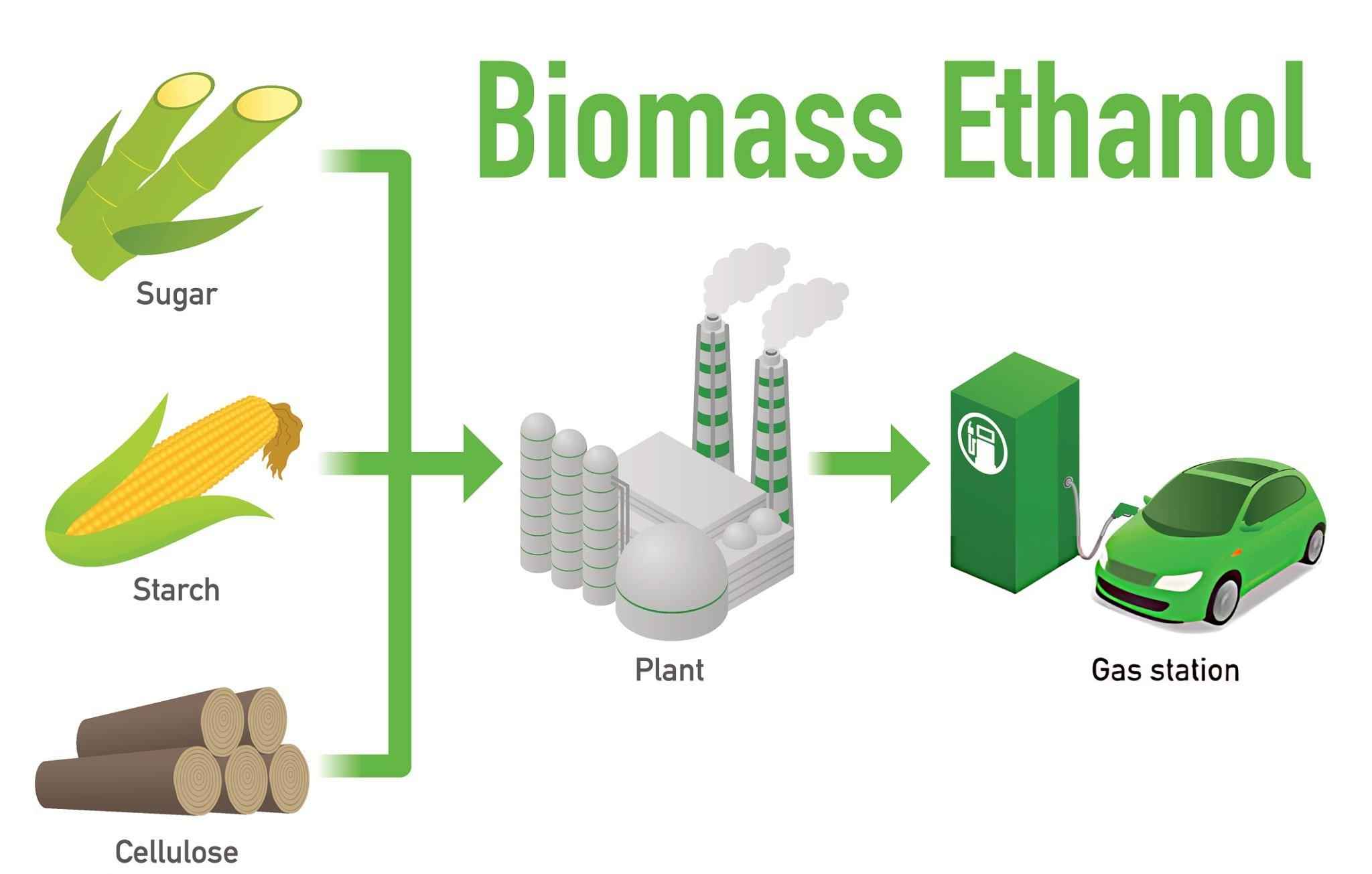SERVODAY Wood Biomass Pellet Plants: The Engineered Feedstock for Superior Bio-Methanol Yield & Profitability
SERVODAY provides complete turnkey wood biomass pellet plants specifically for your bio-methanol production. Our engineered pellets offer unmatched consistency, higher syngas yield, lower OpEx, and maximum gasifier uptime compared to raw biomass or chips. Discover the strategic advantage.

Securing Your Syngas Yield
The Core Challenge in Bio-Methanol Production
The economic viability of a modern bio-methanol plant is intrinsically tied to the efficiency of its gasification island. This efficiency is almost entirely dependent on one factor: the quality and consistency of the biomass feedstock. Inconsistent feedstock—with variable moisture, size, and density—introduces chaos into a process that demands stability, leading to poor syngas quality, frequent downtime, high maintenance costs, and ultimately, lost revenue. SERVODAY addresses this core challenge not just with machinery, but with a holistic feedstock solution.
Choose Your Feedstock Wisely: The Key to Maximizing Your Methanol Plant's Performance and Profitability.
The Feedstock Spectrum: A Detailed Technical Comparison
Understanding the properties of different biomass forms is essential for making an informed capital investment. The following table breaks down the critical parameters that impact methanol plant performance.

Feedstock Property & Impact Analysis
| Feature | Raw Woody Biomass | Wood Chips | Wood Pellets (SERVODAY) |
|---|---|---|---|
| Physical Properties | |||
| Bulk Density (kg/m³) | 150–250 | 250–350 | 600–750 |
| Moisture Content (% wt) | 30–60% | 30–50% | less than 10% |
| Particle Size Distribution | Highly irregular, fines | Irregular, some oversize | Highly uniform, 6–8 mm diameter |
| Impact on Methanol Plant Operations | |||
| Gasification Stability | Poor. Highly variable feed causes temperature fluctuations, poor syngas composition (H₂/CO ratio), and tar formation. | Moderate. More stable than biomass, but moisture variability still causes issues. | Excellent. Uniformity ensures stable temperatures, optimal reactions, and consistent, high-quality syngas. |
| Handling & Flowability | Very poor. Prone to bridging, rat-holing, and clogging in hoppers and screws. Requires front-end loaders. | Moderate. Can flow but may require live-bottom hoppers and agitators to prevent hang-ups. | Excellent. Free-flowing like grain. Perfect for fully automated, precision feeding systems without manual intervention. |
| Pre-Treatment Needs | Extensive. Requires dedicated drying (capacious rotary dryers) and size reduction (grinders) systems, adding significant CapEx and OpEx. | Required. Drying is almost always necessary to reach less than 20% moisture, requiring large dryers and energy input. | Minimal to none. The pelletization process includes drying and sizing. Pellets are "gasification-ready." |
| Storage Footprint | Very large. Low density requires massive storage piles or buildings, increasing fire risk and capital cost. | Large. Still requires significant space for a few days' buffer. | Compact. High density reduces storage volume by ~3× compared to chips, lowering facility costs. |
| Transport Economics | Poor. High cost per energy unit transported due to low density and high moisture (paying to ship water). | Moderate. More efficient than biomass, but still not optimal. | Excellent. Highest energy density per volume drastically reduces freight costs from source to plant. |
| Overall Efficiency & Yield | Low and unpredictable. Net energy yield is low due to energy spent on pre-treatment. Syngas output is variable. | Moderate. A significant portion of energy output is consumed by drying. Yield can fluctuate. | High and predictable. Minimal energy spent on in-plant processing. Maximum energy directed to syngas production. High, consistent yield. |
The SERVODAY Pelletization Process: Engineering a Superior Feedstock
A SERVODAY pellet plant is not merely a processing facility; it is a feedstock refinement system. Our turnkey process includes:

- 1. Primary Size Reduction: Robust hammer mills reduce diverse raw materials (forestry residues, sawdust, agro-waste) to a consistent small particle size.
- 2. Precision Drying: Advanced rotary drum dryers efficiently reduce moisture to a precise, optimal level (8-12%) for pelletization and gasification, often utilizing waste heat from the methanol plant itself.
- 3. Pellet Formation: The heart of the system. Our high-capacity pellet mills compress the conditioned material through hardened steel dies under extreme heat and pressure. This process: Lignin Plasticization: Naturally binds the particles without need for additives. Density Increase: Creates a hard, dense, and durable pellet. Size Standardization: Produces uniform cylinders of a defined size.
- 4. Cooling & Screening: Pellets are cooled to stabilize them and screened to remove any fines, ensuring only premium, whole pellets are shipped.

Download our machine brochure for more information about our advanced pellet production solutions.
SERVODAY Turnkey Pellet Plants: Optimized Feedstock for your Bio-Methanol Production
SERVODAY delivers complete turnkey wood and biomass pellet production plants specifically engineered to create the ideal feedstock for bio-methanol synthesis. As your single-source provider, we manage every phase from concept and design to manufacturing, installation, commissioning, and training. Our plants produce highly uniform, dense pellets with consistent moisture content and particle size, which are critical for achieving stable, efficient gasification. This optimized feedstock prevents channeling and clinkering in the gasifier, maximizes syngas (H₂ + CO) yield, and improves the overall efficiency of your methanol synthesis loop. With capacities from 1 to 25 TPH, our solutions are designed to provide a reliable, high-quality fuel supply that enhances calorific value, simplifies handling and storage, and ensures seamless integration with downstream methanol production processes. Trust SERVODAY to build the foundation for maximum methanol output and operational reliability.
Turnkey Pellet Plant

Inquire About SERVODAY Pellet Production Plant for feedstock requirement of your Bio-Methanol Plant
Are you ready to elevate your Wood & Biomass Pellet Production Plant, Feedstock Handling & Storage Systems for Bio-Methanol Production to new heights? Contact us today to request a quote. Discover the perfect solution tailored to your feedstock needs, offering a customized quote that aligns with your budget and requirements.










